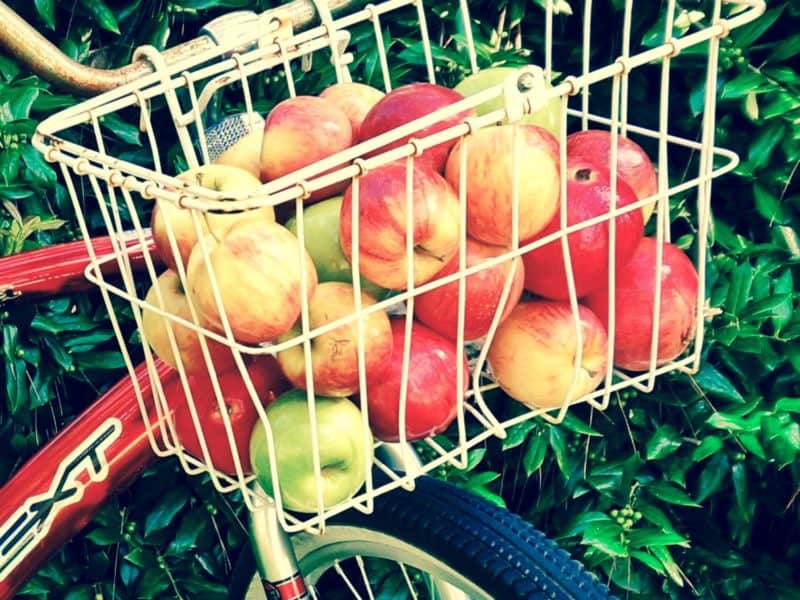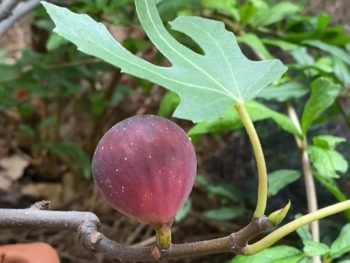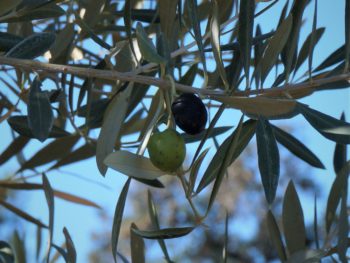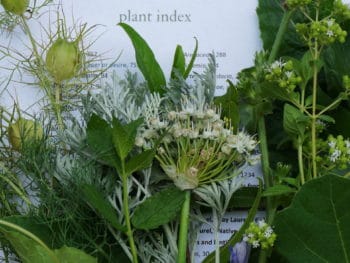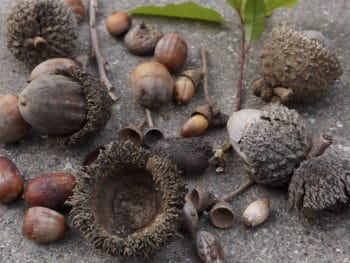Autumn is here and hopefully trees are heavy-laden with apples, their crisp, tart crunch capturing the brisk air and invigorating flavor that we love about fall. Bundle up for a bike ride or orchard picking–or a bike ride to orchard picking! Or celebrate autumn’s arrival by falling into an apple devotion, featured in God’s Word for Gardeners Bible from the Garden Work section, a series on Pruning, titled: “A Word Apple-ly Spoken”
Like apples of gold in settings of silver is a ruling rightly given.
Proverbs 25:11 NIV
Read: Proverbs 25:11 – 12
Fertilize with: Exodus 4:11 – 12; Songs 2:3 – 5; Isaiah 50:4 – 5
Apples as we enjoy them today are a result of cultivation over centuries. Pyrus malus, the crab apple, is credited as being the likely ancestor of all cultivated varieties of apples. It is native to the Caucasus Mountains in Asia, northeast of the Holy Land. Potentially Pyrus malus was the tree referred to in Scripture, though the species needs a colder winter than Israel’s to develop buds for fruiting.
The description in Proverbs “apples of gold” could also imply a fruit’s golden glow, imagining the apricot, Prunus armeniaca, which is also native to central Asia. The apricot is probably a better botanical fit for the fruit described in the Song of Songs as having a delightful scent, providing shade — the canopy of the apricot being larger than the typical apple tree — and sweet fruit (Song of Songs 2:3 – 5). Apricots grow readily in Israel without the apples’ need for colder winters. While they have unique characteristics, both trees are in the Rosaceae family and benefit from pruning to fortify their structure for fruit bearing.
So is Scripture’s apple truly an apple or an apricot? Since there is no reference in Scripture to the seed that would crack the case on this botanical mystery, the apricot being a stone fruit like peaches and plums, and the apple being a pome fruit like pears and figs, let’s assume that God has something for us in the apparent mistranslation into English as “apple.” God wants us to understand his goodness (Psalm 34:8), and for English-speaking people, generally in the apple climates of North America and the British Commonwealth, apples are a symbol of goodness.
To eat “an apple a day,” as the saying goes, promotes our good health; apple pie for Americans represents all that is good and pure about America. We bring an apple to our teacher in September’s start of school, hoping to begin the year in his or her good graces. Likewise, an appropriately spoken word aligns us and opens us to good things — fairness in right rulings, wisdom in accurate judgments (Proverbs 25:11 – 12). 
Photo Credits: ©2015 Shelley S. Cramm The Autumn season is filled with good things – the abundant apple harvest and crisp weather for bike rides.

